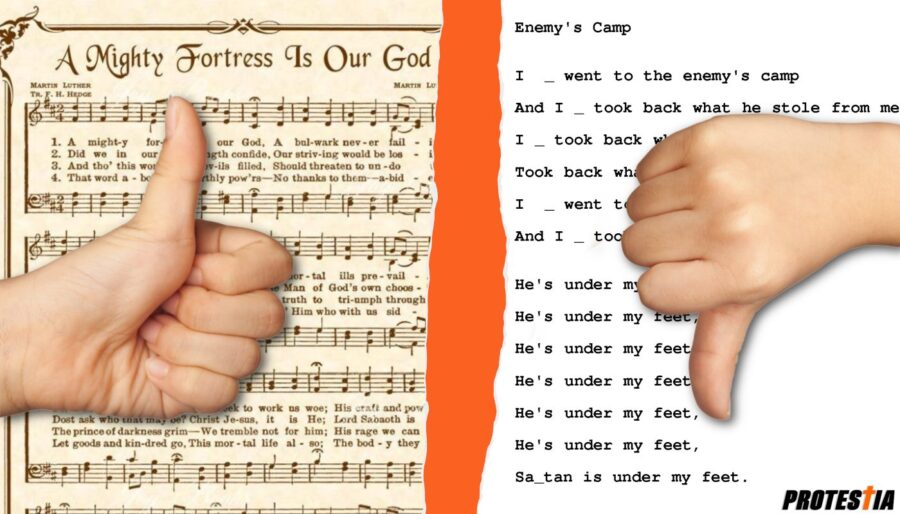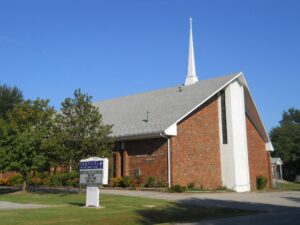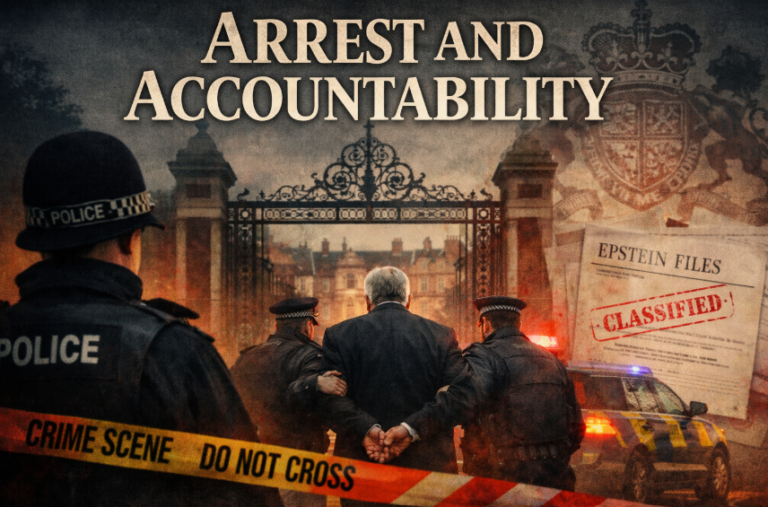For readers who have seen prior theological song reviews here at Protestia, it may seem like most reviews result in a failing score. This is true – most do fail. This is because we insist on a high doctrinal standard for extra-biblical materials, and because the current state of affairs in Christian music is one where the contemporary Christian music industry has shifted its focus almost entirely to corporate worship. These reviews are specifically with regard to a song’s suitability for corporate worship. We will be endeavoring to highlight some worship service-worthy songs, but I’m afraid they will be few and far between.
The song Graves into Gardens was part of Elevation Worship’s live album of the same name, released in May, 2020. The song was certified platinum by the RIAA, won Billboard’s Top Christian Song of 2021, and the Gospel Music Association Dove Award for Worship Recorded Song of the Year.
Note: For a full explanation of the rubric and a primer on our scoring methodology, click here.
Doctrinal Fidelity and Clarity: The prosperity gospel that the song promotes was admitted by Chris Brown of Elevation Worship in an interview in 2020. Brown said that the song was sourced from a Steven Furtick sermon entitled “The Mystery of Potential,” in which (according to Brown) Furtick taught that the miracle in 2 Kings 13 showed that, “Elisha still had a resurrection miracle left in his bones.” Brown said, “God is still in the business of bringing dead things back to life. If we’ll trust God even with the seemingly dead areas of our lives, if we’ll believe in the power of God, if we’ll declare resurrection power over everything we sow, nothing will be wasted.
Brown does not mention the resurrection miracle of salvation, instead he indicates that in the same way resurrection was in Elisha, believers can “declare resurrection power” so that God will apparently not allow the “dead areas of our lives” to be wasted. Yet the miracle of the resurrection of the dead man who touched Elisha’s bones was done to indicate that God’s visible and miraculous power was uniquely attached to his chosen prophet Elisha (a type of Christ), not an indication that we have some sort of “resurrection power” we can apply to whatever area of our life we are dissatisfied with. The account of this miracle in 2 Kings 13 is no more evidence of the general “name it and claim it” taught by Steven Furtick than the resurrection of Christ Himself. Any connection between the song lyrics and the Bible that is beyond mere platitude is unfortunately a clear twisting of the applied passages. 5/25.
Doctrinal Specificity: The song is a masterclass in fill-in-the-blank worship. The chorus is more repetitive and non-specific than any song in rotation at K-Love, preferring to replace any one of dozens of specific adjectives the Bible uses to describe God (holy, righteous, perfect, etc.) with the sophomoric “better.”
The final chorus section might as well be out of a book of Mad Libs, where a worshipper could replace “you turn graves into gardens” with any other generally positive and negative nouns. “You turn bad stuff to good stuff” would function just as well. Almost as if to mock CCM’s use of this formula, the song uses “graves into gardens” (nonsensical since plants easily grow on top of buried bodies) and “seas into highways” (while likely a reference to crossing the red sea, both places of speedy travel). 5/20.
Focus: The focus of the song is predictably about the worshipper, not God, and the lyrics are full of self-referential phrases (“I searched,” My failures and flaws,” “put me back together”) and generic, fill-in-the-meaning phrases (“every desire is now satisfied here in your love,” “there’s not a place Your mercy and grace won’t find me again”) that are typical of worship songs written to have the widest possible appeal. References to God are there, but God’s praiseworthiness is cast as dependent on his utility to the worshipper, not because he is worthy no matter what. 5/20.
Association: (Copied from prior Elevation song review) Elevation Church vision caster Steven Furtick is a narcissistic, anti-Trinitarian heretic. Aside from his disqualifying association with modalist heretics like T.D. Jakes and prosperity hucksters like Joel Osteen, Furtick’s own teaching is replete with false doctrine. Furtick teaches his own brand of the prosperity gospel, in which he struts around in super expensive clothing while consistently minimizing Jesus and elevating (no pun intended) mankind to a quasi-god status. This false doctrine was made painfully obvious in May of 2021 when Furtick screamed “I am God Almighty!” and the end of a crazy, man-exalting sermon rant.
Having an easily-verifiable false teacher as one of the songwriters is the essence of dangerous association. 0/20.
Musical Value: The southern gospel shuffled waltz is written with genre-typical chordal call-and-response between the tonic and the subdominant (1 and 4 chords), which fits well in a wide array of church settings. It is a perfect musical setting for the personal testimony angle of the lyrics. In a non-corporate worship setting (album, concert), many of the lyrical objections to the song become less of a concern, as album songs have a different purpose than the corporate declaration and teaching that characterizes songs used in gathered worship. 15/15.
Total Score: 30/100. Scoring a zero in the association category is automatically disqualifying. Remember, these reviews are about a song’s suitability for use in corporate worship. Apart from the associational danger and the fact that revenue from the song’s monetization feeds a false church, the song itself (like many modern praise songs) would not be nearly as problematic outside the corporate worship context. Yet ironically it needs the corporate worship context with it’s juvenile modern standard of unspecificity to justify its existence, as the simplicity of the composition would likely render the song unpalatable next to popular secular music.
The characterization of supernatural miracles (parting the Red Sea) with God’s working through providence (getting that job you want) is both biblically and spiritually abusive. Modern songwriters count on mature believers who hear their songs to see solid theology in between the lines, while allowing the immature or lost to read their own desires into the same lyrics.
God works his sovereignty in everything, and we give thanks in and out of season. Resurrection as it applies to us is about Christ’s miraculous resurrection that secures ours, not about any and all temporal concerns of life.























3 responses to “Bad Stuff to Good Stuff: Theological Song Review of Graves Into Gardens”
I was out at “Steve Furtick…”
Unfortunately, our church has played this numerous times – not good.
Time to find a new church. Churches that threw out hymns are normally the ones playing this 7/11 drivel. I’ll let you figure out why p&w songs are often called 7/11 songs.
Baloney!